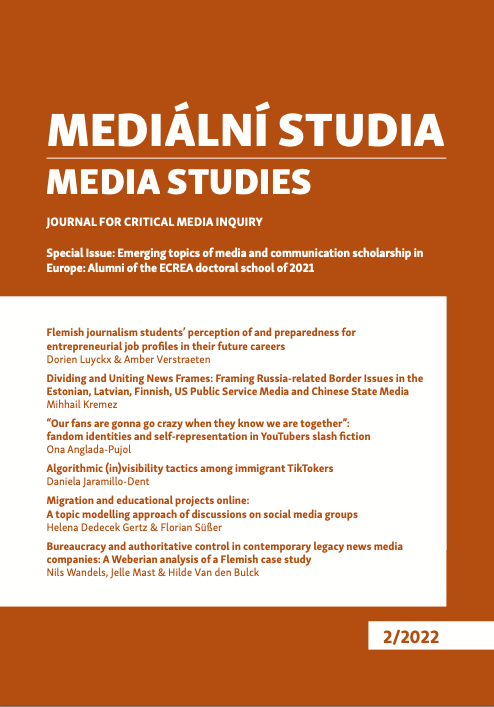Bureaucracy and authoritative control in contemporary legacy news media companies
Bureaucracy and authoritative control in contemporary legacy news media companies
A Weberian analysis of a Flemish case study
Author(s): Nils Wandels, Jelle Mast, Hilde van den BulckSubject(s): Media studies, Communication studies, Sociology
Published by: Univerzita Karlova v Praze, Fakulta sociálních věd
Keywords: Media sociology; journalistic autonomy; Weber; qualitative analysis; interviews; chief editor;
Summary/Abstract: Autonomy is considered a prerequisite for the press to function in service of the public. Over the past few decades both news organizations and society at large have been subjected to significant change and instability, potentially affecting journalists’ independent modes of production. We argue that a re-evaluation of journalism’s institutional strength to perform the societal functions bestowed upon it by the public is imperative. In this paper we contrib- ute to this re-evaluation by examining to what extent the organizational structure of con- temporary legacy news media organizations has a constraining effect on the autonomous modes of production of the newsroom. We draw on the theoretical framework of Max Weber and his concepts of the bureaucratic ideal type, Herrschaft and Lebensordnung to engage in an examination of the organizational properties that characterize two Flemish-based international media conglomerates (DPG Media and Mediahuis) and discuss how these properties might interfere with newsrooms. Our analysis is based on the rarely considered perspective of chief editors, who (as the most powerful representatives of the newsroom within the context of the news company) provide unique insights into the organizational limits to journalistic autonomy.
Journal: Mediální studia
- Issue Year: 16/2022
- Issue No: 02
- Page Range: 257-280
- Page Count: 24
- Language: English

